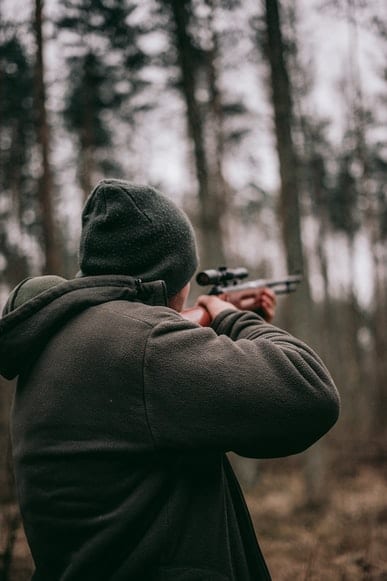Do You Need to Treat Hunting-Related Hearing Loss?
Are you a hunter or target shooter? If so, you should be taking measures to protect one of your most valuable assets: your hearing. In this post, we review how loud sounds cause hearing loss, what the research shows about the relationship between shooting firearms and developing hearing loss, and how you can shoot safely.
Noise-Induced Hearing Loss

The inner ear contains the cochlea, which is filled with fluid and lined with tiny hair cells called stereocilia. The stereocilia’s job is to convert incoming soundwaves into electrical energy that travels via the auditory nerve to the brain to be interpreted as sound. When dangerously loud sounds pass through the ears, it can damage or destroy the stereocilia. Once damaged, the stereocilia do not regenerate, and permanent sensorineural hearing loss is the result.
OSHA reports that any sound over 85 dB can cause permanent damage to your hearing with enough exposure. While it takes eight hours or more of exposure to 85 dB sounds to cause damage, a gunshot produces a sound between 140-190 dB, which is loud enough to cause instant damage.
What the Research Shows
A study by the University of Wisconsin found that, among men ages 48 to 92, those who hunted were much more likely to experience high-frequency hearing loss than those who didn’t. This risk increased by 7% for every five years each man had hunted.
If you have high-frequency hearing loss, you’re likely to have problems distinguishing between certain consonant sounds, like “s,” “th,” and “v.” It’s common for people with high-frequency hearing loss to report being able to hear but not understand speech. Most people with high-frequency sensorineural hearing loss are treated with hearing aids.
What is most alarming about this study is that, of the 3,753 participants, 38% of the target shooters and 95% of the hunters reported never wearing hearing protection while shooting over the previous year.
How to Protect Your Hearing
Next time you’re hunting at a Fon Du Lac hunting preserve, be sure to follow our tips for safe shooting:
- Wear hearing protection at all times.
- Double-protect your ears (earmuffs over earplugs).
- Invest in hunter’s plugs, which block loud sounds while allowing safe sounds through clearly.
- Choose a smaller caliber firearm.
- Avoid shooting in groups or in reverberant environments.
To learn more or to schedule an appointment, call DeFatta Health today.